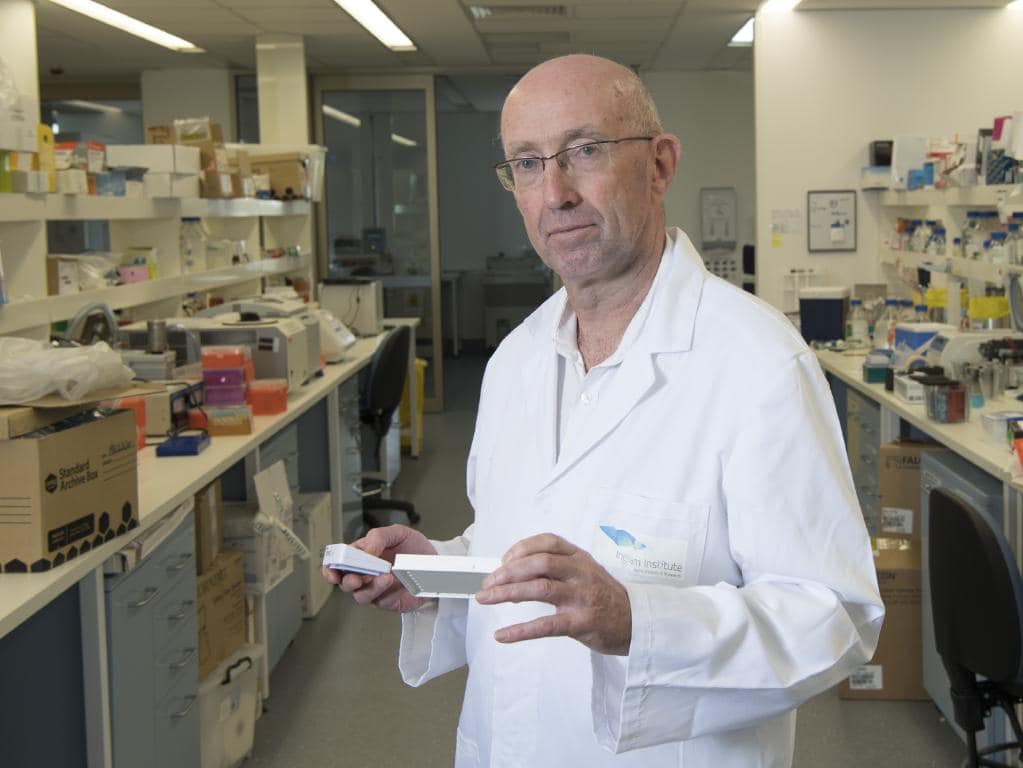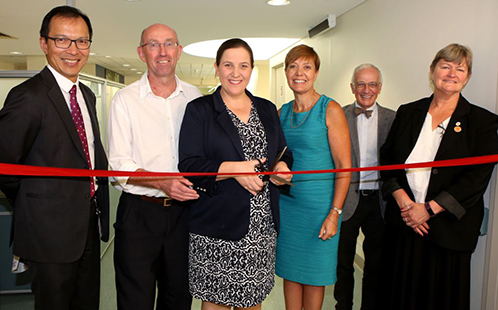
World-first clinical trial set to advance prostate cancer research
Liverpool Hospital launched a cancer research facility today where a new, ground-breaking prostate cancer drug will trialled.
It all began when Associate Professor Kieran Scott was researching for a possible arthritis medication, which they discovered, has the potential to be a life-saving prostate cancer treatment.
Associate Professor Scott will lead the team testing the c2 compound that he’s researched for the past 15 years.
“We have been conducting Phase 1 trials here since 2013, but this is the first time we will have a dedicated space for the convenience and comfort of staff and patients alike,” Head of unit, Professor Paul de Souza said.
“The unit will assist us in attracting more trials of the calibre of Associate Professor Kieran Scott’s prostate cancer drug as well as allowing us to perform more of the laboratory work in-house.”
Professor Scott said there had already been a lot of progress.
“We found in laboratory trials that c2 not only shrinks tumours but can cause them to disappear completely,” he said.
“Importantly, having a unit like the one now opened in Liverpool Hospital means we can quickly evaluate the efficacy of the compound in a relatively small trial and then determine whether it should go on to bigger trials.”
As an added bonus for the patients and staff involved, c2 will be administered in the form of a capsule as opposed to intravenously.
The trial will be complete in nine months and the team aims to recruit between 12 to 20 participants.
But the unit will test more than the medication for prostate cancer.
The Phase 1 Clinical Trials Unit will provide a permanent space to conduct phase 1 trials of various cancer medications.
“Our unit is going to focus on testing therapeutic studies in advanced cancer patients along with other biomarker or genomic studies,” Professor de Souza said.
“The patients who will be treated here have generally failed other cancer treatments available, so we will be able to offer them treatments that are not yet available outside of a research setting.”
The unit will provide four treatment rooms with the ability to provide medication to eight patients at a time.
Services will include drug treatments, blood sampling, blood processing, monitoring, education and patient review.
Associate Professor Scott’s team is supported by Western Sydney University and the Ingham Institute.
Published on December 7 2017, Liverpool Champion newspaper


Leave a Comment